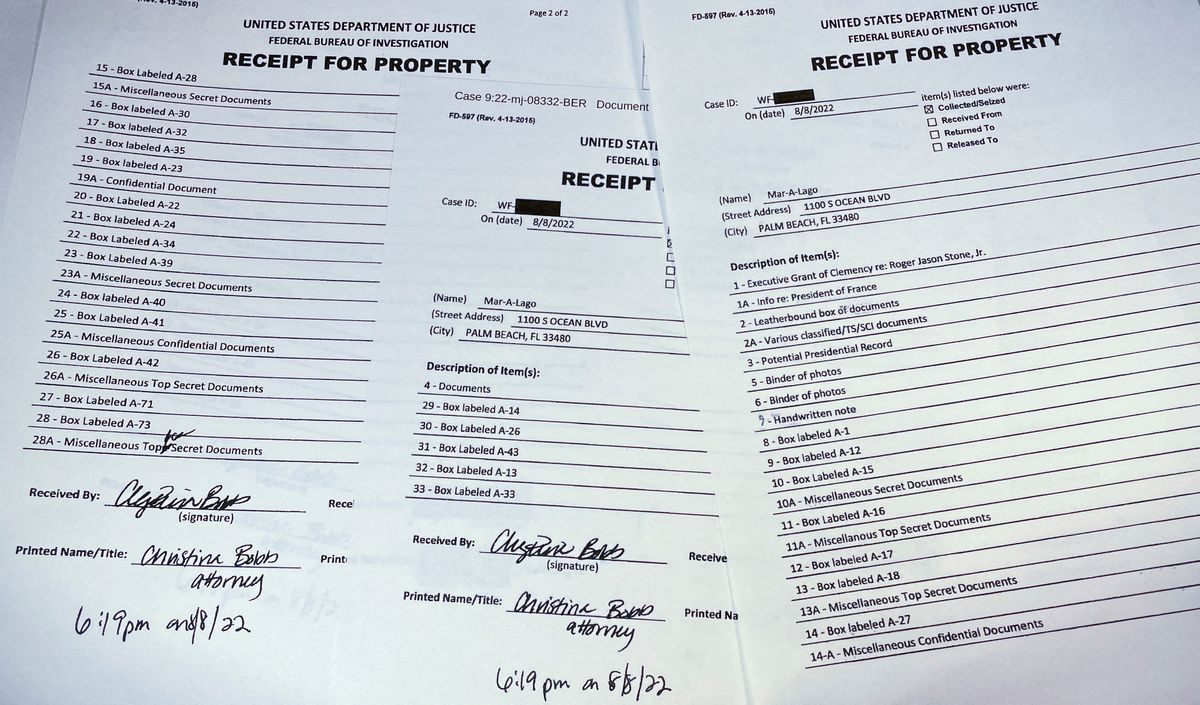WASHINGTON, (Reuters) – Former President Donald Trump yesterday asked a federal court to temporarily block the FBI from reviewing the materials it seized two weeks ago from his Florida home, until a special master can be appointed to oversee the review.
Trump’s court motion, filed in a federal court in West Palm Beach, Florida, also demanded that the U.S. Justice Department provide him with a more detailed property receipt outlining the items the FBI seized from his Mar-a-Lago home during its Aug. 8 search, and asked investigators to return any items outside the scope of the search warrant.
“Politics cannot be allowed to impact the administration of justice,” the filing says. “Law enforcement is a shield that protects Americans. It cannot be used as a weapon for political purposes,” it added.
His request was assigned to U.S. District Judge Aileen M. Cannon, whom Trump appointed to the bench.
Magistrate Judge Bruce Reinhart, the judge who approved the warrant, is weighing whether to require the Justice Department to release a redacted copy of the affidavit laying out the evidence for why there was probable cause to search Trump’s home.
The Justice Department at a court hearing last week staunchly opposed its release, saying it would provide people with a “roadmap” of its investigation and possibly chill witness cooperation.
In a court order filed earlier yesterday, Reinhart said he agrees those are legitimate concerns, but said he wants to explore whether there is a “less onerous alternative to sealing the entire document.”
The Justice Department has until noon on Thursday to provide him under seal a redacted copy of the document that he could potentially release to the public.
The Aug. 8 search of Mar-a-Lago marked a significant escalation in one of the many federal and state investigations Trump is facing from his time in office and in private business. In an unusual move, U.S. Attorney General Merrick Garland later agreed to ask the court to release a redacted copy of the search warrant and property receipt outlining the items taken, after Trump publicly accused the department of political retribution.
The search, which was approved by Reinhart on Aug. 5, is part of a federal investigation into whether Trump illegally removed documents when he left office in January 2021 after losing the presidential election to Democrat Joe Biden.
During its search the FBI seized 11 sets of classified materials at Mar-a-Lago, some of which were labeled “top secret” – the highest level of classification reserved for the most closely held U.S. national security information and which can only be viewed in special government facilities.





